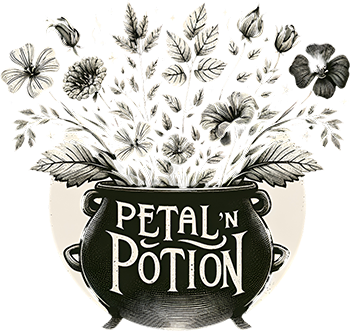G a r l i c
Garlic (Allium sativum) is a bulbous plant widely used for its culinary and medicinal properties.
Native to Central Asia, garlic is known for its strong flavor and numerous health benefits, making it a staple in various traditional medicine systems.
Benefits
- Cardiovascular Health: Supports heart health by lowering blood pressure, reducing cholesterol levels, and improving blood circulation.
- Immune Support: Enhances immune function and helps the body fight off infections.
- Antimicrobial Properties: Exhibits antibacterial, antiviral, and antifungal effects, making it effective against various pathogens.
- Anti-Inflammatory: Reduces inflammation, which can help with conditions such as arthritis and inflammatory diseases.
- Antioxidant Properties: Provides antioxidants that protect cells from oxidative stress and damage.
- Cancer Prevention: Contains compounds that may reduce the risk of certain cancers, including colorectal and stomach cancer.
- Detoxification: Supports liver health and aids in the detoxification process.
Active Compounds
- Allicin: The primary active compound, known for its antimicrobial, anti-inflammatory, and antioxidant effects.
- S-allyl cysteine: Contributes to cardiovascular benefits and antioxidant properties.
- Diallyl disulfide: Offers antimicrobial and anticancer benefits.
- Sulfur Compounds: Provide a range of health benefits, including immune support and detoxification.
- Flavonoids: Offer additional antioxidant and anti-inflammatory effects.
Who Should Avoid This
- Individuals with Allergies: Those allergic to garlic or other plants in the Allium family (such as onions, leeks, and chives) should avoid it.
- People with Bleeding Disorders: Should use caution, as garlic may increase the risk of bleeding.
- Individuals before Surgery: Should avoid high doses of garlic due to its blood-thinning effects.
- Pregnant and Nursing Women: While generally safe in food amounts, it is advisable to consult a healthcare provider before using supplements.
- Individuals on Medication: Particularly those taking blood thinners, diabetes medications, or blood pressure medications should consult a healthcare provider to avoid interactions.
Warnings
While garlic offers numerous health benefits, some precautions and potential side effects should be considered:
- Gastrointestinal Issues: High doses may cause stomach upset, heartburn, or diarrhea.
- Breath and Body Odor: Consumption can lead to strong breath and body odor.
- Allergic Reactions: Can cause allergic reactions in some individuals.
- Blood Thinning: May have blood-thinning effects and should not be used before surgery or with anticoagulant medications.
- Pregnancy and Breastfeeding: Generally considered safe in moderate amounts; however, consult a healthcare provider before using supplements.
- Interactions with Medications: May interact with certain medications, including blood thinners, diabetes medications, and antihypertensives.
Usage Guidelines
Garlic can be used both short-term and long-term, depending on the condition being treated. For acute issues such as infections or digestive discomfort, it is typically used until symptoms improve. For ongoing benefits such as cardiovascular support or immune enhancement, longer-term use may be appropriate but always under the guidance of a healthcare professional. Always consult with a healthcare provider to determine the correct dosage and duration for your specific needs.
